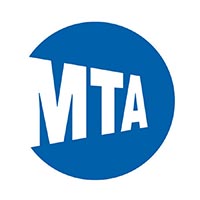 The Metropolitan Transportation Authority (MTA) today announced an update to agency-wide sanitizing protocols as it continues to implement precautions in response to the novel coronavirus (COVID-19). New York City Transit, MTA Bus, Access-A-Ride, Long Island Rail Road and Metro-North are significantly increasing the frequency and intensity of sanitizing procedures at each of its stations and on its full fleet of rolling stock. Trains, cars and buses will experience daily cleanings with the MTA’s full fleet undergoing sanitization every 72 hours. Frequently used surfaces in stations, such as turnstiles, MetroCard and ticket vending machines, and handrails, will be disinfected daily. MTA will use EPA-approved and CDC-endorsed disinfectants.
The Metropolitan Transportation Authority (MTA) today announced an update to agency-wide sanitizing protocols as it continues to implement precautions in response to the novel coronavirus (COVID-19). New York City Transit, MTA Bus, Access-A-Ride, Long Island Rail Road and Metro-North are significantly increasing the frequency and intensity of sanitizing procedures at each of its stations and on its full fleet of rolling stock. Trains, cars and buses will experience daily cleanings with the MTA’s full fleet undergoing sanitization every 72 hours. Frequently used surfaces in stations, such as turnstiles, MetroCard and ticket vending machines, and handrails, will be disinfected daily. MTA will use EPA-approved and CDC-endorsed disinfectants.
The MTA will also deploy health guidance PSAs in stations and on train cars and buses to complement customer messaging already deployed across 3,600 subway screens, 2,000 bus screens and at 84 subway station street entrances. The same messaging has also been deployed across 550 railroad screens. The MTA has stockpiles of hygienic supplies on hand and continues to procure cleaning materials, while working hand-in-hand with the National Centers for Disease Control (CDC), the State Department of Health (DOH), and other government agencies.
“While there has been only one confirmed case of coronavirus in New York and it did not involve the mass transit system, we are committed to doing everything we can to keep in front of the situation and protect our customers and employees,” said Pat Foye, MTA Chairman and CEO. “Starting tonight we have enacted additional cleaning protocols designed to disinfect our stations, trains, buses, and Access-A-Ride vehicles. Working in coordination with the governor and state and federal health authorities, we continue to aggressively monitor the situation and take all necessary actions to ensure our system remains safe.”
“While we understand the concerns over the coronavirus, the reality is the risk in New York remains low,” said MTA Chief Operating Officer Mario Péloquin. “We want our more than eight million customers and our employees to know that we are taking every precaution to ensure their safety, starting with sanitizing of the entire system. We will continue to keep the public fully informed and we thank our frontline employees for their efforts.”
“The safety of our customers and employees is our first priority as we continue to monitor the coronavirus,” said Patrick Warren, MTA Chief Safety Officer. “The MTA is enhancing its cleaning regimen across all our operating agencies to ensure the system is safe for everyone. The best defense against COVID-19, according to the National Centers for Disease Control, continues to be good hygiene – frequent hand washing and self-care.”
The MTA tonight will begin an enhanced daily cleaning procedure for all stations, train cars and buses through the entire system. That includes the 472 stations throughout the subway system, 21 stations along Staten Island Railway, the 124 stations and terminals along Long Island Rail Road and 101 stations throughout Metro-North’s New York territory.
In addition to routinely removing stains, soil and surface dirt, cleaners will be disinfecting commonly touched surfaces including turnstiles, slam gates, handrails, benches, elevator buttons, and MetroCard and ticket vending machines.
Daily car cleanings of New York City Transit’s 6,714 subway cars, Staten Island Railway’s 64 cars, and Long Island Rail Road and Metro-North’s over 1,100 cars each will begin so that no car in a fleet would go beyond a 72-hour period without a full cleaning. This cleaning cycle also includes the MTA’s 5,700 buses and fleet of 1,341 dedicated Access-A-Ride vans.
The MTA continues to work around the clock with the CDC, DOH and other agencies, and has already taken a number of steps to provide information about the novel coronavirus to our employees and customers.
—via Press Release

